✨English✨
✨English✨
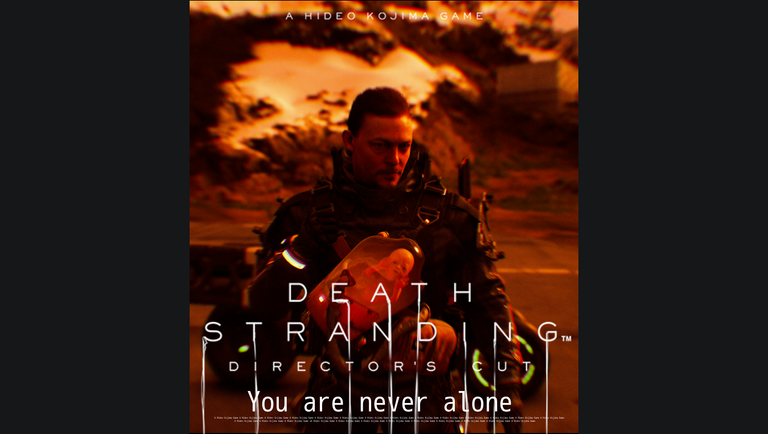
Have you ever played a Hideo Kojima game? Maybe some of you don't even know who he is, he became internationally recognized for his flagship franchise, Metal Gear, he also has earlier games, like Policenauts, or later ones, like Death Stranding, but this director is always characterized by bringing cinema to video games, and although it's a topic I want to discuss in depth, I will save it for later.
Returning to the point, Hideo Kojima is a genius in the video game industry, you may like his games or not, but I believe we can reach a consensus that Kojima's games have things you won't find anywhere else, they are rare, peculiar, and with that movie or action series tone, in the case of Metal Gear, which I loved at least when I played the first three main installments of Metal Gear Solid.
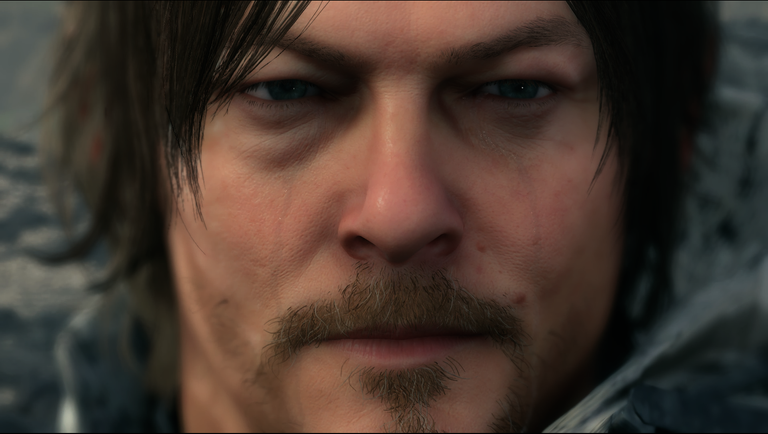
Generally when we play something we just want to take the controller, or the keyboard, and forget about everything, play until time allows us, but there is a detail with Kojima's games, and it's that many times we will have to release the controller to watch cinematics, something normal in many games, but the case of Kojima's games is special, and I'll specifically use Death Stranding to explain this.
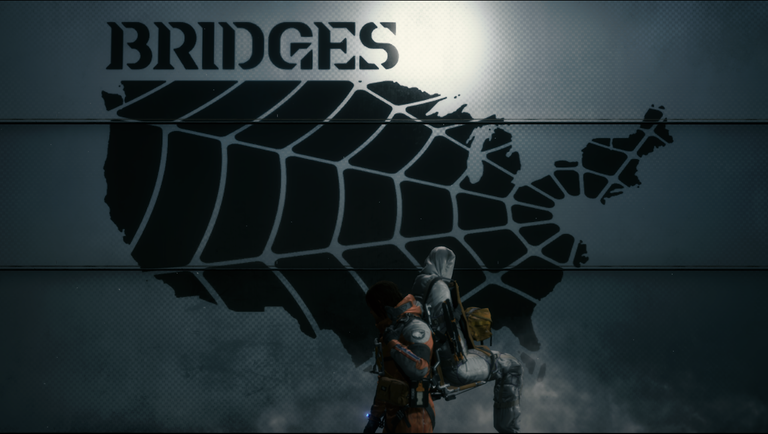
The beginning of the game consists of several-minute cinematics with short playable segments, before going back to a several-minute cinematic, and so on during the first couple of hours of gameplay. At times, there are simply a lot of dialogues, which require you to pay attention if you want to understand the story, making it a slow start for someone who just wants to play without interruptions, but that's not the case for me.
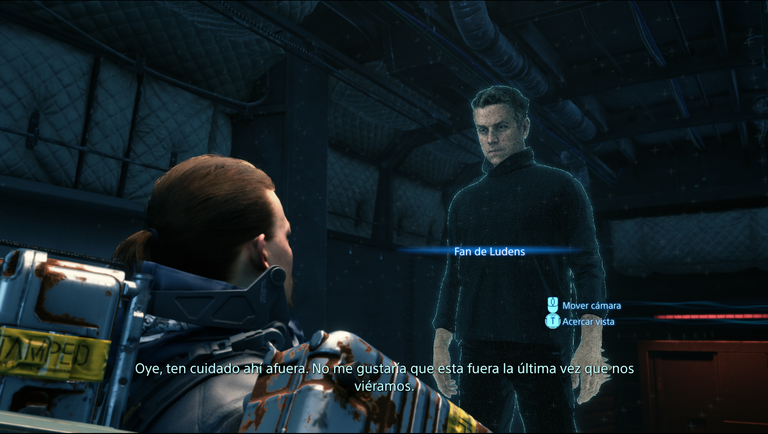
This formula is repeated across different volumes in all of Kojima's games, usually abundant in cinematics and dialogues, always with this Hollywood touch that the director, who considers himself a frustrated filmmaker, likes to exploit. I remind you that I haven't played ALL of Kojima's games, but in ALL the ones that I have played, the pattern repeats itself, and if you are willing to "endure" spending 10 or sometimes even 20 minutes (sometimes 30, 40 or even an hour) without touching the controller, believe me, you will experience a story like no other, and although I consider that Death Stranding has fewer cinematics compared to, for example, Metal Gear Solid 3, and even though it's shorter, I felt that in proportion it had more cinematics, Death Stranding leaves you with quite a loose rein during most of the game, as the entire main story is condensed almost to the end.
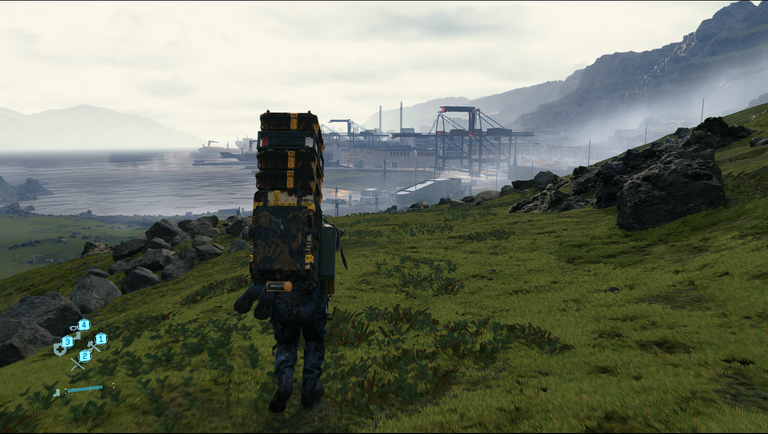
Starting from scratch, Death Stranding puts us in the role of Sam Porter Bridges, a "deliveryman" whose job is to carry shipments from point A to point B, but this takes place in a post-apocalyptic world where the United States has suffered an unexplainable phenomenon, the Death Stranding (IT'S THE NAME OF THE GAME!), so all cities have been replaced by mainly underground ones where the survivors of this catastrophe live.
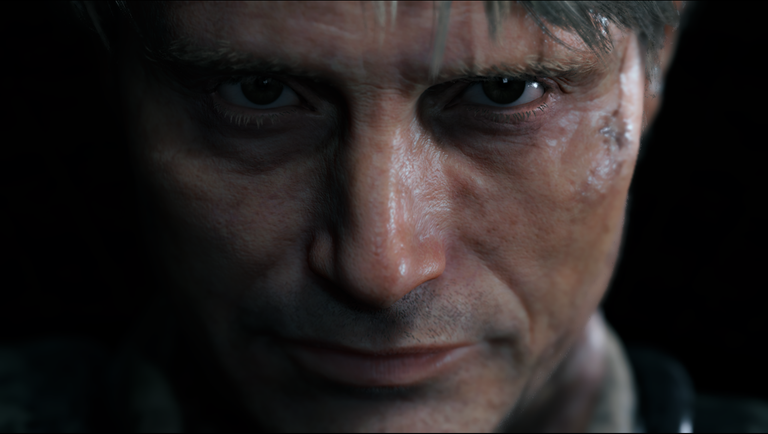
The game starts by showing us that Sam is someone who doesn't want trouble with anyone, doesn't want to bond with anyone, and also suffers from afenfosfobia, which is basically the fear of being touched, he is very reserved, few words and he is perfectly fine with that, but then he gets involved with Bridges, an organization he knows well, and where they know him well. Bridges had the mission of connecting the country after the Death Stranding, they were led by President Bridget Strand, and they are interested in Sam for something that I will explain to you, wait for spoilers from the first 2-3 hours of the game.
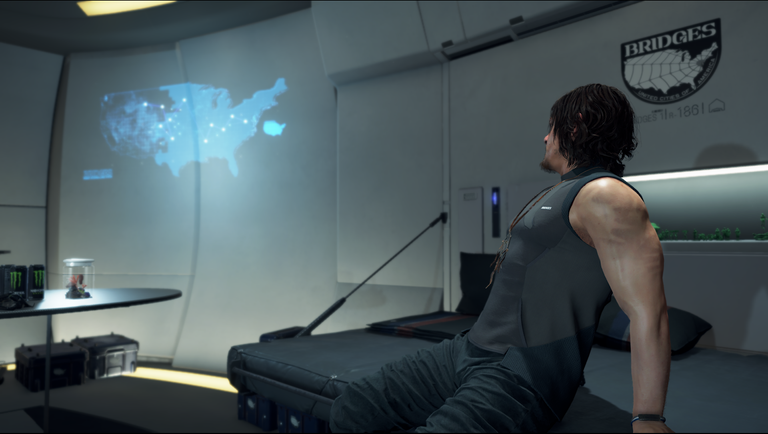
In Death Stranding, death works in a strange way, it's not like we know it, it doesn't "end" when a person dies under specific conditions, it's just the beginning of something horrible, and that is generally when someone dies their body begins to "decompose" very quickly, it enters a state of necrosis, a state that lasts 48 hours where the "soul" of the deceased tries to return to their body, and if successful the deceased becomes a BT, one of the types of enemies in the game, a kind of trapped soul in the world of the living and that populate the outer world, and which we must avoid at all costs.
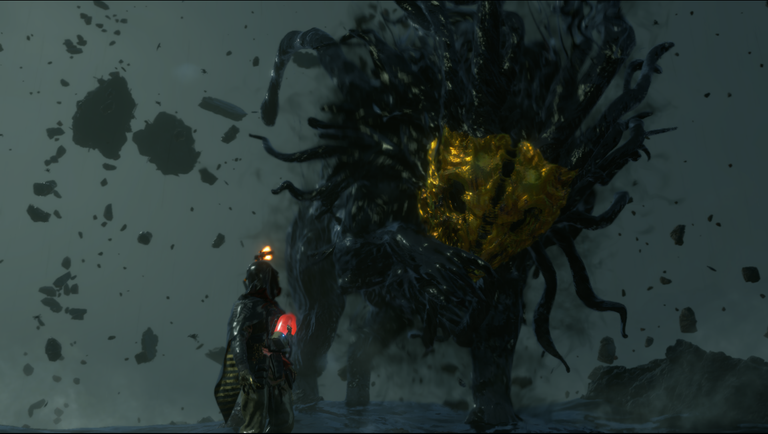
This is explained to us at the beginning of the game as we see Sam involved in a case where they fail to incinerate the body in time and it becomes a BT, a situation in which Sam dies, and we discover that he is a "repatriate," someone whose soul can return to their body without entering a state of necrosis, and therefore, someone VERY important in a world like this, and therefore, Bridges wants Sam's help to reconnect the cities of the United States.
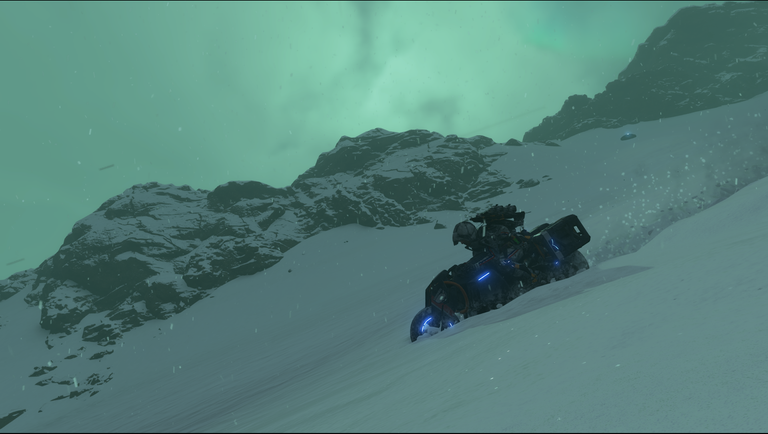
Due to all of this, despite Sam initially resisting, he's going to talk to Bridges' president, who is someone with whom he seems to have a close bond, but we don't quite understand why at the moment. The point is that Bridget (the president) dies and Sam has the mission to cremate her before she enters necrosis, something he successfully achieves. However, while at the place for cremating bodies, he encounters a BB unit, which was there to be discarded because it was said to be defective. Despite the warnings given to Sam, he decides to take it with him in order to successfully escape a group of BTs that were outside the incinerator.
Opening a parenthesis to quickly explain that a BB is a kind of baby extracted from its mother without completing the pregnancy cycle and placed in an incubator that simulates the mother's womb. These BBs can detect BTs when connected to an odradek, which is a sort of antenna with which we can analyze the terrain and also detect BTs when we enter an area full of them, as they are invisible to the naked eye.
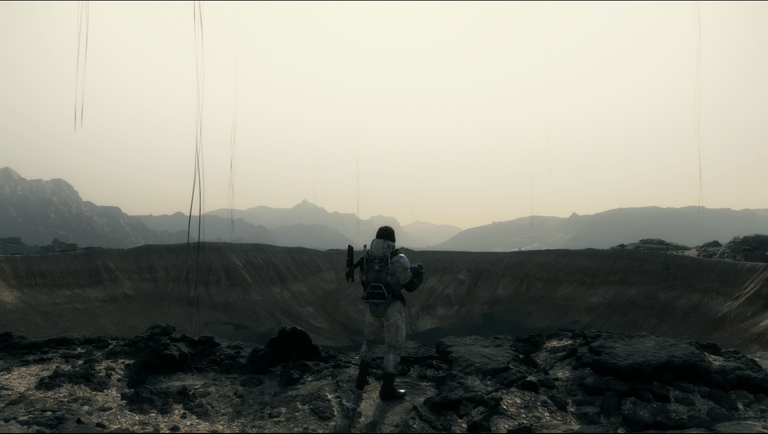
Once all this is done, Sam must speak with Amelie, Bridget Strand's daughter and the next in line, someone who is at the eastern tip of the country, in Edge Knot City, a place Sam must travel to from Capital Knot City, which is at the western tip, carrying a "collar" called Q-Pid to reconnect the cities one by one to the chiral network, thus communications can be restored and take advantage of things like chiral printers, which can print a good amount of things to make life easier for the inhabitants of each city, but for that to happen, Sam must first connect them to the network, point to point, node to node, knot by knot.
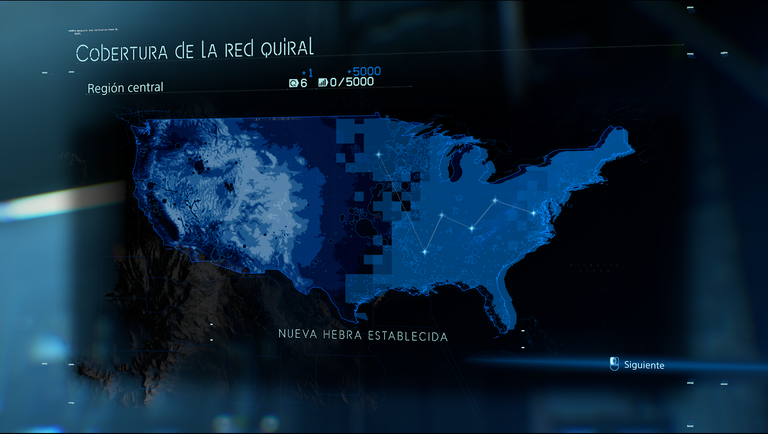
Here is where the game introduction more or less ends, you already have a mission, so you start by doing tasks at the nearest node, things without too much importance and not too heavy packages either, the idea is to introduce us to the mechanics that we will be using throughout the game. In summary, Sam can carry packages on his back, shoulders, hips, and even hold one in each hand, the idea is that in each delivery we organize the load in the most optimal way possible so that Sam has a little easier time walking and maintaining his balance, the heavier the weight, the more difficult it will be to make each delivery, likewise, Sam's resistance will be consumed more quickly and if you exceed the weight you will not be able to carry the load, so you cannot accept all orders at once and carry them all, you must choose your deliveries wisely, not only for the load, but also for the path you will undergo and the tools you might need to facilitate your work a bit, because yes, you are not going to cross the entire country alone with a BB, but we can also make equipment like ladders or climbing anchors to descend cliffs that you couldn't jump because you would hurt yourself or die directly, so it is always worth making a little space to carry a ladder or a CLS, with which you can create different structures, even generators to charge batteries or mailboxes to leave cargo, why would you leave cargo in a mailbox in the middle of nowhere?, that's where the title of this post comes in.
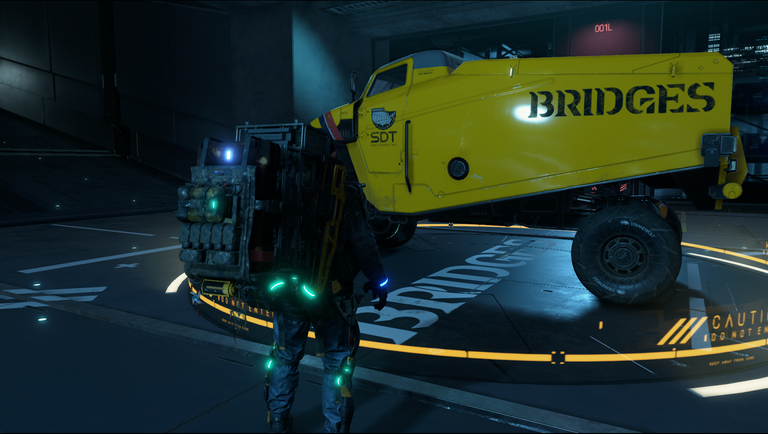
Death Stranding is not a typical multiplayer game, but it has a very important multiplayer component that will be with you throughout the game, unless you play offline, I suppose. Do you remember the chiral network?, that network that you must activate throughout the country using the Q-Pid?, well not only does it allow you to produce equipment or serve as a component of the story, it also allows you to see things that other players have left along the way in places where it is active, perhaps lost cargo that they couldn't deliver, or mailboxes with cargo that you can pick up and deliver in their place if you'd like, these kind of actions will earn you "likes", which generally functions as the game's experience system, as you progress through certain levels, Sam's physical abilities will improve, for example, he will be able to carry a bit more weight, so it's not just the likes that make you feel good, but they also make you perform better, something that indeed makes a lot of sense when you understand what likes are within the game, which are no different from the ones we give on social networks or here on Hive.
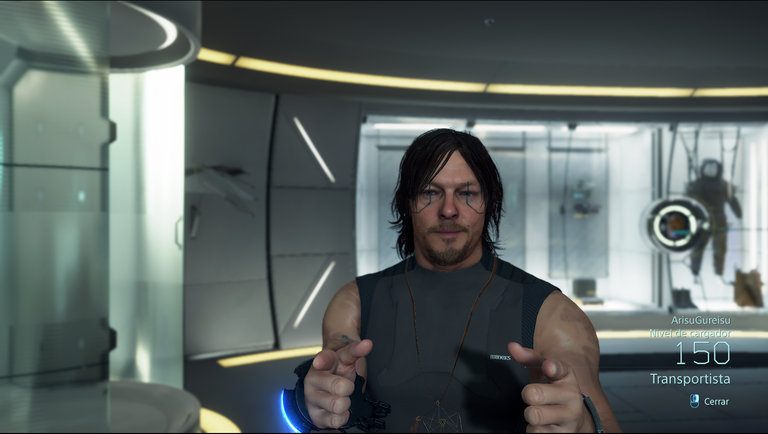
But the chiral network is not only there to make you work harder, but also to make your journey a little more pleasant, which can often be long or very steep, and that is why you will also find tools from other players, ladders, anchor points, generators, shelters for the rain, bridges, and even private underground rooms where you can rest without having to go to one of the main stops, something that is greatly appreciated. And how can you show appreciation? By giving likes, because not only do you receive them but you can also give them. You are not giving away your own likes so you can like whatever you want without fear. They are not finite, but the time during which you can give them is finite, so make sure to give all you can to that person who put that bridge right where you needed it.
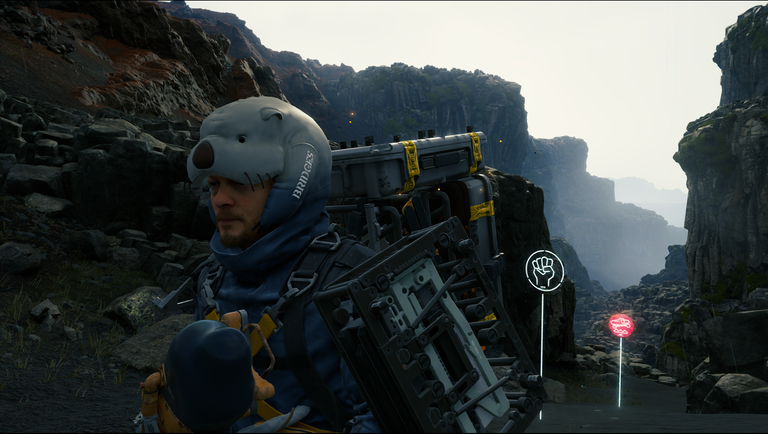
The structures you build will also appear in other players' games, so you can also receive likes this way, it’s a constant feedback that makes you feel that the world is not as lonely and desolate as it seems at first glance, that maybe there is hope for the country, and that unity is the key to achieve it.
This is manifested in two main ways, not only through other players but also with the NPCs that await you at each stop, none is like the other and while some may give you a somewhat generic impression at first, they all have a story, and their own temperament. Although the world has gone to hell, not everyone is willing to join the chiral network, there are people who want nothing to do with Bridges or its progress, they are fine on their own, don't want to be bothered, and don't want anything to do with anything that presents a change to them, they are generally called "preppers," but at the end of the day, everyone has a story to tell and that you will discover through what they tell you each time you deliver an important package to them, or through emails that you can read at any time from Sam's cufflinks, but the best thing you can do is get into your private room, play music on the player, and start reading, it's a very enjoyable experience. Don't like reading? cry harder, HOWEVER, the main story of the game can be understood without this part of the emails and all that, but you miss out on a lot of the background of the secondary characters, which is worth exploring.
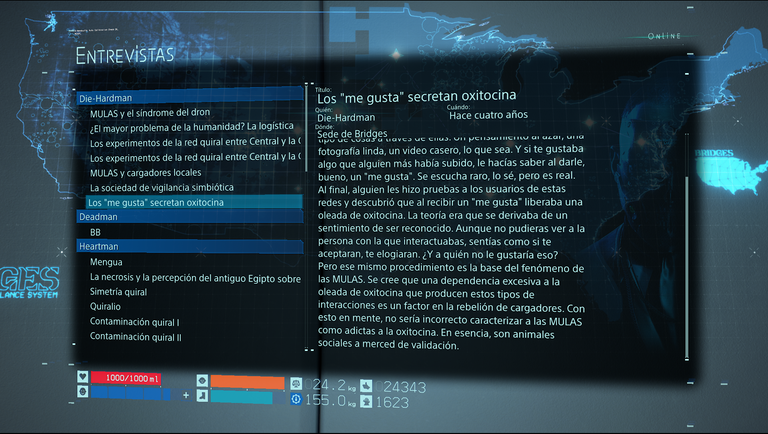
I just mentioned the music, and it's an important point I want to talk about, and that is that the game barely has music, generally you will be walking through the world accompanied by the sound of your footsteps, the flow of the rivers, the rustling grass or the laughs and cries of BB, sometimes Sam will speak out loud to fill the silences, with small comments to himself, giving himself encouragement, but when music starts playing out of nowhere, everything else stops making noise to make way for the current musical theme, which is nothing but Kojima's Spotify playlist.
This is not bad at all, because the music chosen by Kojima for these moments during the journeys always achieves its purpose, turning a contemplative game into an even more contemplative one, everything takes on another tone and at least in my case, it always leaves me with a very positive feeling, as if out of nowhere, you were given 1000 likes.
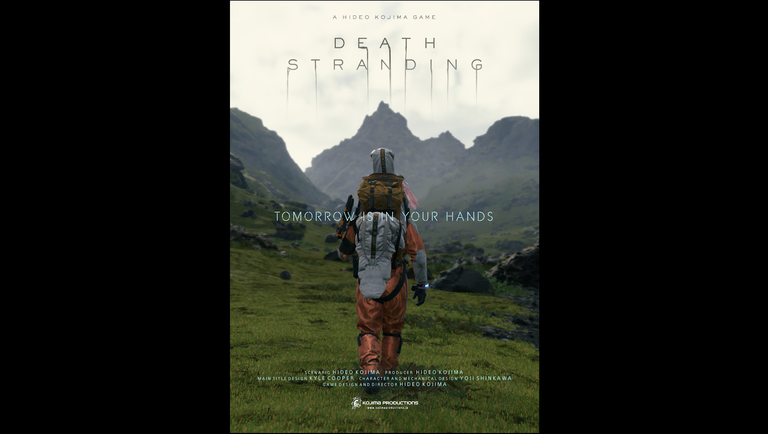
Photo Mode is AWESOME
But despite using a lot of licensed music, Death Stranding has original themes that are worth highlighting, and in this case I will mention the most well-known one by far, we have heard it since the trailers.
BB’s Theme
BB’s Theme
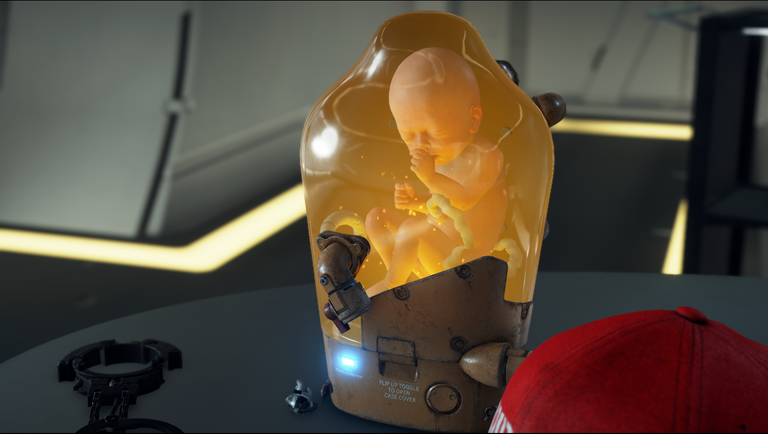
Perhaps at first the importance of BB is limited to being just another tool in Sam's arsenal, a biodegradable scanner that will eventually fail and need to be replaced by another, which is why it's very curious that the most important original topic of the game is attributed to something that isn't even a character, but merely a tool, or so it seems at first.
It's not normal, but when Sam plugs into BB, it may happen that Sam sees memories he doesn't understand, that are not his own, they seem to be seen from inside an incubator, so they must be BB's memories, and this is where it starts to become important, because through BB's past we discover part of the game's story, in addition to that in his memories we see a character portrayed by Mads Mikkelsen of whom we know nothing at first, in this way the game generates more unanswered doubts, a feeling that will extend throughout the first... 40 hours of gameplay, or at least that was my case.

Something I can't specify is when this track plays, I feel that saying it is a spoiler in itself, but I can tell you that when the moment finally arrived, it became one of my favorite moments in video games, and I cried, that's all I'll say.
According to How Long to Beat, it can take an average of 40 hours to finish Death Stranding, it took me 57 and I can tell you the game takes a long time, but A LOT to start explaining things, if you have played any of Kojima's games you know what you're getting into, and after the first few hours of dialogues and cinematics the game releases you to your luck to start making deliveries that are very rarely interrupted, as the interruptions are made by you, unless for a story reason a trigger forces you straight to rest in the room or something like that.
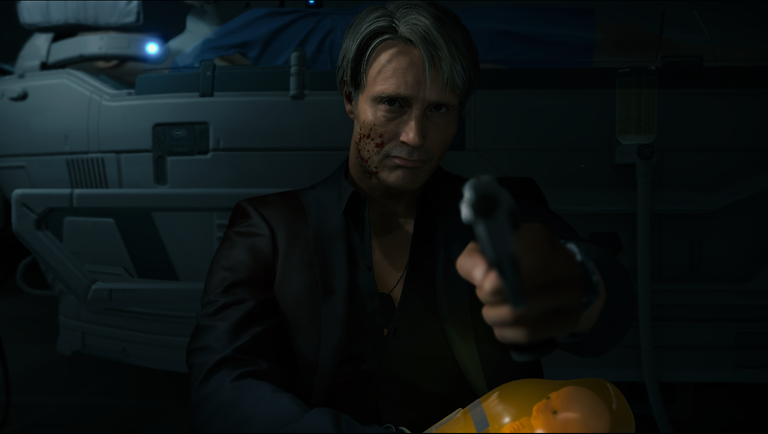
During most of the game, you are in doubt about what is happening and you always have the feeling that you don't understand something, but I can assure you that in the end (almost) everything has an answer, there are things that you have to guess with the information that the game gives you, but when everything fits into place and you understand why things are the way they are, all that journey you took makes even more sense and now that I remember the beginning of it, it fills me with a lot of nostalgia even, it is one of the most wonderful stories that can be told through a video game and although I consider that not everyone will be willing to spend more than 30 hours delivering packages, I hope that those who decide to give it a chance enjoy it very much.
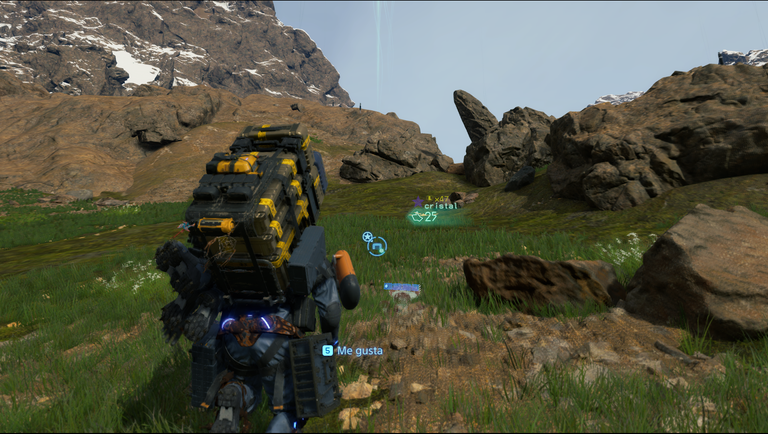
There are two things I have decided to talk about, and that is, first, the main characters, and second, the weapons. The first is because I consider them to be the best part of the game, each one has its own particularities and it's best for you to get to know them on your own, and as for the weapons, the game insists that you avoid killing whenever possible. If you don't understand why at this point, read again and come back here, but I feel it's an unnecessary addition for those intolerant to something without action. It's appreciated all the same, but I wouldn't have complained if the game didn't have firearms either.
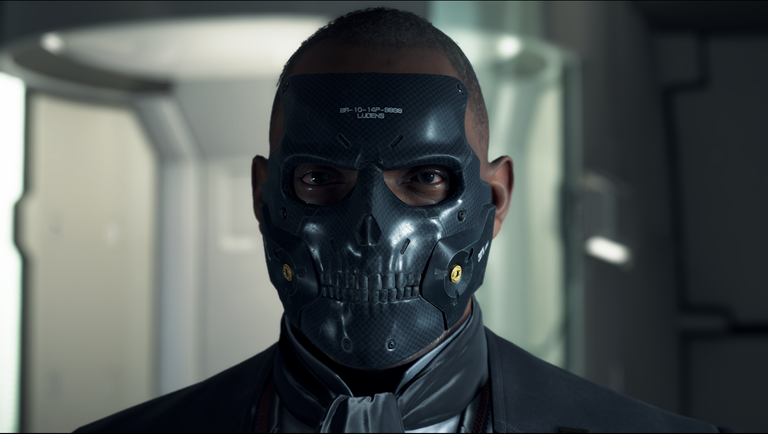
So much text is not enough to express the love I feel now for the game, and if you have already played it, I hope to know your experience, I have decided not to give important details of the story because there is no point in telling you important details of such a long game.
Thank you very much for reading, I hope you like it, and please, tell me your impressions about the game, see you around, bye bye!
Screenshots were taken by me 📷
Translated with Hive Translator

✨Español✨
✨Español✨

¿Alguna vez han jugado un juego de Hideo Kojima?, quizá alguno de ustedes ni siquiera sepa quién es, se hizo reconocido internacionalmente por su franquicia estrella, Metal Gear, también tiene juegos anteriores, como Policenauts, o posteriores, como Death Stranding, pero este director siempre se caracteriza por trasladar el cine a los videojuegos, y aunque es un tema del que quiero hablar en profundidad, me lo reservaré para luego.
Volviendo al punto, Hideo Kojima es un genio de la industria del videojuego, pueden gustarte sus juegos o no, pero creo que podemos llegar a un consenso respecto a que los juegos de Kojima tienen cosas que no encuentras en ninguna otra parte, son raros, peculiares, y con ese tono de película o serie de acción, en el caso de Metal Gear, que al menos a mi me encantó cuando jugué las tres primeras entregas principales de Metal Gear Solid.

Generalmente cuando jugamos a algo queremos simplemente tomar el mando, o el teclado, y olvidarnos de todo, jugar hasta que nos lo permita el tiempo, pero hay un detalle con los juegos de Kojima, y es que muchas veces tendremos que soltar el mando para ver cinemáticas, algo normal en muchos juegos, pero el caso de los juegos de Kojima es especial, y usaré específicamente Death Stranding para explicar esto.

El inicio del juego son cinemáticas de varios minutos con segmentos jugables que se hacen bastante cortos, antes de volver a ponerte una cinemática de varios minutos, y así durante el primer par de horas de juego, a veces simplemente hay muchos diálogos, lo cual te hace tener que prestar atención de igual manera si piensas entender la historia, por lo que es un inicio que puede hacerse pesado para alguien que solo quiere jugar sin interrupciones, pero este no es mi caso.

Esta fórmula se repite en diferentes volúmenes en todos los juegos de Kojima, generalmente abundan las cinemáticas y diálogos, siempre con este toque hollywoodiense que tanto le gusta explotar al director que, se considera un cineasta frustrado. Les recuerdo que no he jugado TODOS los juegos de Kojima, pero en TODOS los que YO he jugado, el patrón se repite, y si estás dispuesto a “soportar” pasar 10 o a veces incluso 20 minutos (a veces 30, 40 o incluso una hora) sin tocar el mando, creeme que experimentarás una historia como ninguna otra, y aunque considero que Death Stranding tiene menos cinemáticas en comparación a, por ejemplo, Metal Gear Solid 3, y si bien este es más corto, sentí que en proporción tenía más cinemáticas, Death Stranding te deja la rienda bastante suelta durante la mayoría del juego, pues toda la historia principal se condensa casi al final.

Partiendo desde cero, Death Stranding nos pone en el papel de Sam Porter Bridges, un “repartidor” cuyo trabajo es llevar cargamentos del punto A al punto B, pero esto ocurre en un mundo postapocalíptico donde Estados Unidos ha sufrido un fenómeno inexplicable, el Death Stranding (¡ES EL NOMBRE DEL JUEGO!), así que todas las ciudades han sido reemplazadas por otras principalmente subterráneas donde habitan los supervivientes de toda esta catástrofe que ha dejado todo el país (y seguramente el mundo) totalmente aislado.

El juego empieza demostrándonos que Sam es alguien que no quiere problemas con nadie, no quiere estrechar lazos con nadie, y que además sufre de afenfosfobia, que es básicamente el miedo a ser tocado, es alguien muy reservado, de pocas palabras y que está perfectamente bien así, pero entonces se involucra con Bridges, una organización que él conoce bien, y donde le conocen bien. Bridges tenía la misión de conectar el país después del Death Stranding, estaban dirigidos por la presidenta Bridget Strand, y están interesados en Sam por algo que ya les iré explicando, esperen spoilers de las primeras 2-3 horas de juego.

En Death Stranding, la muerte funciona de forma extraña, no es como la conocemos, no “termina” cuando la persona muere bajo condiciones específicas, es solo el principio de algo horrible, y es que generalmente cuando alguien muere su cuerpo empieza a “descomponerse” muy aceleradamente, entra en estado de necrosis, un estado que dura 48 horas donde el “alma” del muerto intenta regresar a su cuerpo, y si lo logra el muerto se convierte en un BT, uno de los tipos de enemigo del juego, una especie de alma atrapada en el mundo de los vivos y que pueblan el mundo exterior, y los cuales debemos evitar a toda costa.

Esto se nos explica al principio del juego pues vemos a Sam inmerso en un caso donde no logran incinerar el cuerpo a tiempo y se convierte en un BT, una situación en la cual Sam muere, y descubrimos que él es un “repatriado”, alguien cuya alma puede volver a su cuerpo sin entrar en estado de necrosis, y por lo tanto, alguien MUY importante en un mundo así, y por ende Bridges quiere la ayuda de Sam para reconectar las ciudades de Estados Unidos.

Por todo esto, a pesar de que Sam opone resistencia en un principio, va a hablar con la presidenta de Bridges, quien es una persona con quien parece tener un lazo cercano, pero no entendemos bien por qué de momento, el caso es que Bridget muere y Sam tiene la misión de ir a incinerarla antes de que entre en necrosis, algo que logra exitosamente, pero mientras está en el lugar para incinerar cadáveres se encuentra una unidad BB, estaba allí para desechar pues se decía estaba defectuosa, pero a pesar de las advertencias que se le daban a Sam, este decidió llevarla consigo para además escapar exitosamente de un grupo de BTs que había fuera del incinerador.
Abro un paréntesis para explicar rápidamente que un BB es una especie de bebé extraído de su madre sin completar el ciclo de embarazo y puesto en una incubadora que simula el vientre de su madre, estos BBs pueden detectar BTs al conectarlos a un odradek, que es una especie de antena con la que podemos analizar el terreno y además detectar BTs cuando entramos en un campo lleno de ellos, ya que son invisibles a simple vista.

Una vez hecho todo esto, Sam debe hablar con Amelie, la hija de Bridget Strand y la siguiente al mando, alguien que está en la punta este del país, en Edge Knot City, lugar al cual Sam debe viajar desde Capital Knot City, que está en la punta oeste, llevando un “collar” llamado Q-Pid para reconectar las ciudades una por una a la red quiral, de esta forma podrán reestablecerse las comunicaciones y aprovecharse de cosas como las impresoras quirales, que pueden imprimir una buena cantidad de cosas para facilitar al vida de los habitantes de cada ciudad, pero para que eso ocurra, primero Sam debe conectarlos a la red, punto a punto, nodo a nodo, nudo por nudo.

Es aquí donde más o menos termina la introducción del juego, ya tienes una misión, así que empiezas haciendo encargos al nodo más cercano, cosas sin demasiada importancia y tampoco paquetes demasiado pesados, la idea es introducirnos las mecánicas que estaremos utilizando durante todo el juego. Resumiendo, Sam puede llevar paquetes en su espalda, hombros, caderas e incluso sostener uno en cada mano, la idea es que en cada entrega organicemos la carga de la forma más óptima posible para que Sam tenga un poco más fácil el caminar y mantener su equilibrio, a mayor peso más difícil será hacer cada entrega, igualmente se consumirá más rápido la resistencia de Sam y si te excedes del peso directamente no podrás llevar la carga, por lo que no puedes aceptar todos los pedidos a la vez y llevarlos todos, debes elegir bien tus entregas, no solo por la carga, sino por el camino al que te someterás y las herramientas que podrías necesitar para facilitar un poco tu trabajo, porque sí, no vas a cruzar todo el país solo con un BB, sino que también podemos fabricar equipo como escaleras o enganches de escalada para descender acantilados que no podrías saltar porque te lastimarías o directamente morirías, así que siempre vale la pena hacer un poco de espacio para llevar una escalera o un CQP, con los cuales puedes crear diferentes estructuras, incluso generadores para cargar baterías o buzones donde dejar carga, ¿y para qué dejarías carga en un buzón en medio de la nada?, ahí es donde entra el título de este post.

Death Stranding no es un juego multijugador al uso, pero tiene un componente multijugador muy importante y que te estará acompañando toda la partida, a menos que juegues offline, supongo. ¿Recuerdan la red quiral?, ¿esa red que debes activar por todo el país usando el Q-Pid?, pues no solo te permite producir equipo o servir como un componente de la historia, también te permite que en los lugares donde está activa puedas ver cosas que han dejado otros jugadores por el camino, quizá carga perdida que no pudieron entregar, o buzones con carga que si gustas puedes recoger y entregar en su lugar, este tipo de acciones te dará “likes”, que generalmente funciona como el sistema de experiencia del juego, cada ciertos niveles que subas Sam mejorará sus capacidades físicas, por ejemplo, podrá llevar un poco más de peso, así que no solo los likes te hacen sentir bien, sino que te hacen desempeñarte mejor, algo que por cierto tiene mucho sentido cuando entiendes lo que son los likes dentro del juego, los cuales no son diferentes de los que damos en redes sociales o acá en Hive.

Pero la red quiral no solo está para hacerte trabajar más, sino también para hacer un poco más ameno tu camino, que muchas veces puede ser largo o muy empinado, y es por eso que también encontrarás herramientas de otros jugadores, escaleras, puntos de anclaje, generadores, refugios para la mengua, puentes e incluso habitaciones privadas subterráneas donde puedes descansar sin tener que ir a una de las paradas principales, algo que se agradece mucho, ¿y como puedes agradecer?, dando likes, pues no solo los recibes sino que también puedes darlos, no estás dando de tus likes así que puedes darle like a lo que quieras sin miedo, no son finitos, pero sí es finito el tiempo durante el que puedes darlos, así que asegúrate de dar todos los que puedas a esa persona que puso ese puente justo donde lo necesitabas.

Las estructuras que tú construyas también se verán en las partidas de otros jugadores, así que también puedes recibir likes de esta forma, es un feedback constante que te hace sentir que legítimamente el mundo no está tan solo y desolado como parece a primera vista, que quizá hay esperanza para el país, y que en la unión está la fuerza para lograrlo.
Esto se manifiesta de dos formas principales, no solo a través de otros jugadores sino con los NPCs que te esperan en cada parada, ninguno es igual al otro y si bien quizá alguno te puede dar una impresión un poco genérica de primeras, todos tienen una historia, y su propio temperamento. Aunque el mundo se haya ido a la mierda no todos están dispuestos a unirse a la red quiral, hay personas que no quieren saber nada de Bridges o de su progreso, están bien solos, no quieren que los molesten y no quieren tener nada que ver con algo que les presente un cambio, generalmente son llamados “preparacionistas”, pero al final del día, todos tienen una historia que contar y la cual irás descubriendo a través de lo que te digan cada vez que les entregas un paquete importante, o a través de correos que puedes leer en todo momento desde el brazalete de Sam, pero lo mejor que puedes hacer es meterte a tu habitación privada, poner música en el reproductor y empezar a leer, es una experiencia muy agradable. ¿No te gusta leer?, te jodes, aunque siendo sincera, la historia principal del juego se puede entender sin esta parte de los correos y todo eso, pero te pierdes de mucho del trasfondo de los personajes secundarios, que no tiene desperdicio.

Acabo de mencionar la música, y es un punto importante del que quiero hablar, y es que el juego apenas tiene música, generalmente estarás caminando por el mundo acompañado del sonido de tus pisadas, de la corriente de los ríos, el césped agitándose o las risas y llantos de BB, a veces Sam hablará en voz alta para llenar los silencios, pequeños comentarios para él mismo dándose ánimos, pero cuando de la nada empieza a sonar música todo lo demás deja de hacer ruido para darle lugar al tema musical de turno, que no deja de ser la lista de reproducción de Spotify de Kojima.
Esto no es malo ni mucho menos, pues la música que ha elegido Kojima para estos momentos durante los viajes siempre logra su cometido, convierte un juego contemplativo en un juego aun más contemplativo, todo adquiere otro tono y al menos en mi caso, siempre me deja con un sentimiento muy positivo, como si de la nada te dieran 1000 likes.

El modo foto es una de las joyas del juego
Pero a pesar de usar mucha música licenciada, Death Stranding tiene temas originales que vale la pena destacar, y en este caso mencionaré el más conocido con diferencia, lo hemos escuchado desde los trailers.
BB’s Theme
BB’s Theme

Quizá en un principio la importancia de BB se limite a la de una herramienta más en el equipo de Sam, un escáner biodegradable que fallará en algún momento y tiene que ser reemplazado por otro, por lo cual es muy curioso que el tema original más importante del juego se atribuya a algo que ni siquiera es un personaje, sino solo una herramienta, o eso es lo que parece al principio.
No es algo normal, pero cuando Sam se conecta a BB puede ocurrir que Sam vea recuerdos que no entiende, que no son suyos, parecen vistos desde dentro de una incubadora, por lo que han de ser recuerdos de BB, y es aquí donde empieza a tomar importancia, pues gracias al pasado de BB descubrimos parte de la historia de juego, además de que en sus recuerdos vemos a un personaje interpretado por Mads Mikkelsen del que no sabemos nada en un principio, de esta forma el juego va generando más dudas sin resolver ninguna precisamente, un sentimiento que se va a extender durante las primeras… 40 horas de juego, o al menos fue mi caso.

Algo que no puedo especificar, es cuándo suena este tema, siento que decirlo es un spoiler en sí mismo, pero puedo decirles que cuando finalmente llegó el momento, se convirtió en uno de mis momentos favoritos de los videojuegos, es todo lo que diré.
Según How Long to Beat, puedes tardar una media de 40 horas en terminar Death Stranding, a mi me tomó 57 y puedo decirte que el juego tarda mucho, pero MUCHO en empezar a explicar cosas, si has jugado algo de Kojima ya sabes a lo que te expones, y es que después de las primeras horas de diálogos y cinemáticas el juego te suelta a tu suerte para que empieces a hacer entregas que muy pocas veces se ven interrumpidas, pues las interrupciones las haces tú, salvo que por un motivo de historia un trigger te fuerce directo a descansar en la habitación o algo por el estilo.

Durante la mayoría del tiempo de juego estás con dudas de lo que ocurre y siempre tienes el sentimiento de que no entiendes algo, pero puedo asegurarles que al final (casi) todo tiene respuesta, hay cosas que tienes que intuir tú con la información que te da el juego, pero cuando todo calza y entiendes el porqué de las cosas, todo ese viaje que hiciste cobra aun más sentido y ahora que recuerdo los inicios del mismo, me llena con mucha nostalgia incluso, es una de las historias más maravillosas que se pueden contar a través de un videojuego y aunque considero que no todo el mundo estará decidido a pasar más de 30 horas repartiendo paquetes, espero que quien decida darle una oportunidad lo disfrute mucho.

Hay dos cosas de las que he decidido hablar, y eso es, primero, los personajes principales, y segundo, las armas. Lo primero es porque considero que son lo mejor del juego, cada uno tiene sus particularidades y lo mejor es que los conozcan por su cuenta, y en cuanto a las armas, el juego tiene una insistencia permanente en que evites matar siempre que puedas, si a estas alturas no entiendes por qué vuelve a leer y regresa aquí, pero siento que es un añadido innecesario al juego para esa gente intolerante a algo sin acción, igual se agradece, pero si el juego no tuviera armas de fuego tampoco me hubiera quejado.

Tanto texto no alcanza para expresar el amor que siento ahora por el juego, y si ya lo han jugado espero conocer su experiencia, he decidido no dar detalles importantes de la historia pues no hay chiste en contarles detalles importantes de un juego tan largo.
Muchas gracias por leer y espero les haya gustado, sin más que agregar, nos vemos por ahí, bye bye!
Las capturas fueron tomadas personalmente 📷

